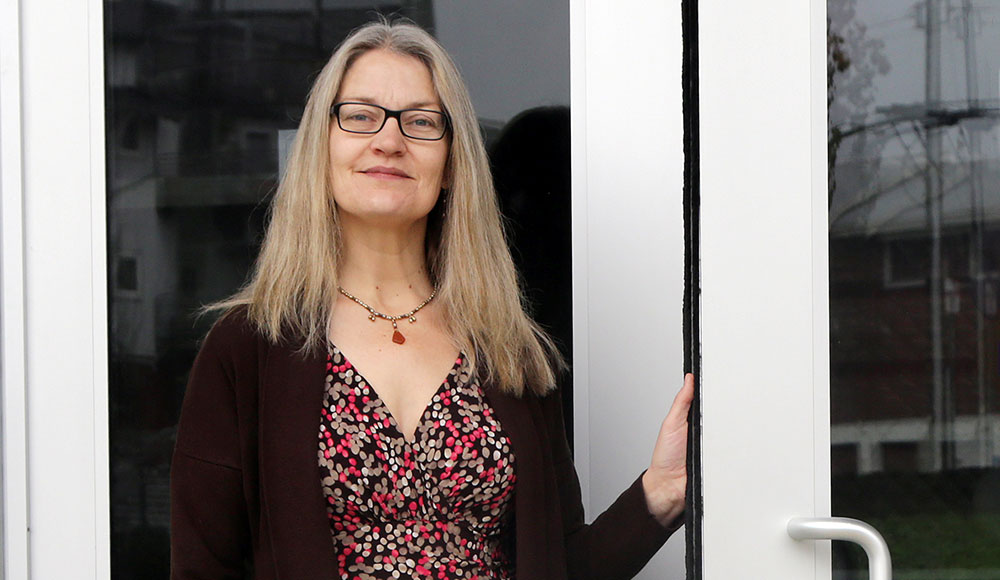From All About Theatre to Theatre 831, performance entrepreneur Lindsey Chester isn’t afraid to leap over tall buildings. Taking over the former Tannery Arts Center home of the Jewel Theater with her new project, Theatre 831, Chester is already reaching out to local arts groups.
Giving priority to performance groups at the Tannery World Dance and Cultural Center, Chester is determined to expand the jewelbox theater’s event offerings in much the way that Kuumbwa and the Rio Theater have done.
Theatre 831 is one of 63 organizations participating in Santa Cruz Gives, the holiday fundraising program started by Good Times in 2015. To donate, visit SantaCruzGives.org by midnight on Dec. 31, 2024.
Within weeks of assuming management of the theater vacated last spring, Chester and her All About Theatre performers have already mounted a production of The Little Mermaid, essentially diving into her exhilarating new venture with little time for thinking twice. Many of her young students have gone on to larger regional stages, even Hollywood and Broadway.
“All About Theatre was my first child,” she admits. While Chester’s AAT will maintain a vigorous performance schedule at the Colligan, Chester has plenty of room for community groups to schedule musical and theatrical events throughout the year.
“We’re promoting it as a venue space,” Chester asserts. “It is the Colligan Theater, and All About Theatre happens to do some shows. I want to put it where we are more collaborative within the community.”
Chester sees artistic direction in Santa Cruz being refreshed by a post-COVID turnover in leadership. She cites Andrea Hart and the Cabrillo Stage, Charles Pasternak with Santa Cruz Shakespeare, and her own new leadership with Theatre 831. “I think we have an opportunity for education with new, vibrant people. We should all collaborate now.”
The last thing the Colligan’s new management wants is to create another exclusive performing arts silo. Chester acknowledges that there are grumbles about the Jewel becoming strictly a kids’ theatrical venue.
“I think those grumblers need to actually come and see a professional kids’ production. They are amazing. Some of our students have performed in [Actors’ Theatre’s] 8Tens, at Cabrillo Stage, and have been cast in [Santa Cruz Shakespeare’s] A Christmas Carol.”

Chester senses a new attitude within local performance groups. “That us-versus-everybody-else attitude has never, ever served performing arts. People want more collaboration.”
Tuition from AAT parents has helped to support maintenance of a warehouse for costumes and other theatrical props, as well as leasing the Colligan Theater as a venue. “Our aspiration is that we would keep our current studio and would also be able to offer evening classes. There’s the main theater here, but there’s also the lobby where we could have open mic nights, other community events, exhibitions with live guitar music. We’re going to be applying for a liquor license so that other artists could have an intimate setting in the lobby, a little reception area also. Creative concession offerings will also bring in more support revenue.”
Yes, there are big challenges.
“We are literally hitting the ground like not just gazelles but cheetahs,” Chester says. “We basically had two and a half weeks to get in to learn the whole system. Getting it ready has taken copious amounts of manpower and labor, some of which are volunteers.”
But the goal is big, too: “What we are aspiring to do is build an annual calendar where treasured groups from the local area can be expected here at those dates at that same time of year, every year, so it becomes more of a consistent venue space.”
The next big challenge, she admits, “as we grapple with what this beautiful vision could be, is how to handle hiring. How do you hire somebody if they’re not needed full time? Maybe it will end up as the full-time position, but only maybe. That’s the beauty of having All About Theatre in there is that the bills get paid. We’re looking at how we adjust the infrastructure and find the environmentally friendly way of running things. So there’s a big learning curve, but once we’ve hit the ground running within the next couple of shows, I do feel that we will be able to move past the chaos.”
Find out about Theatre 831 and Colligan Theater programming at colligantheater.org.













